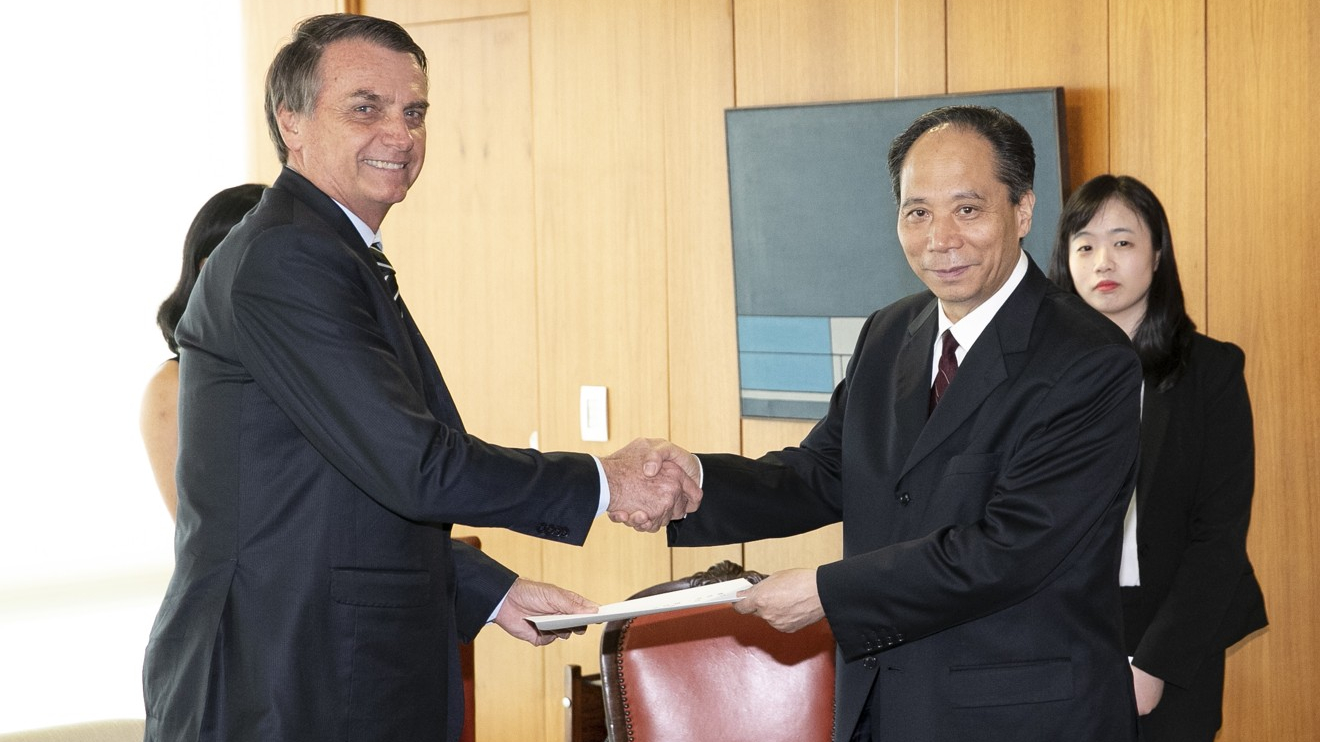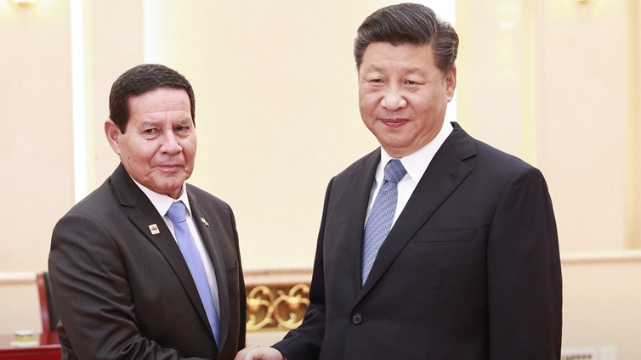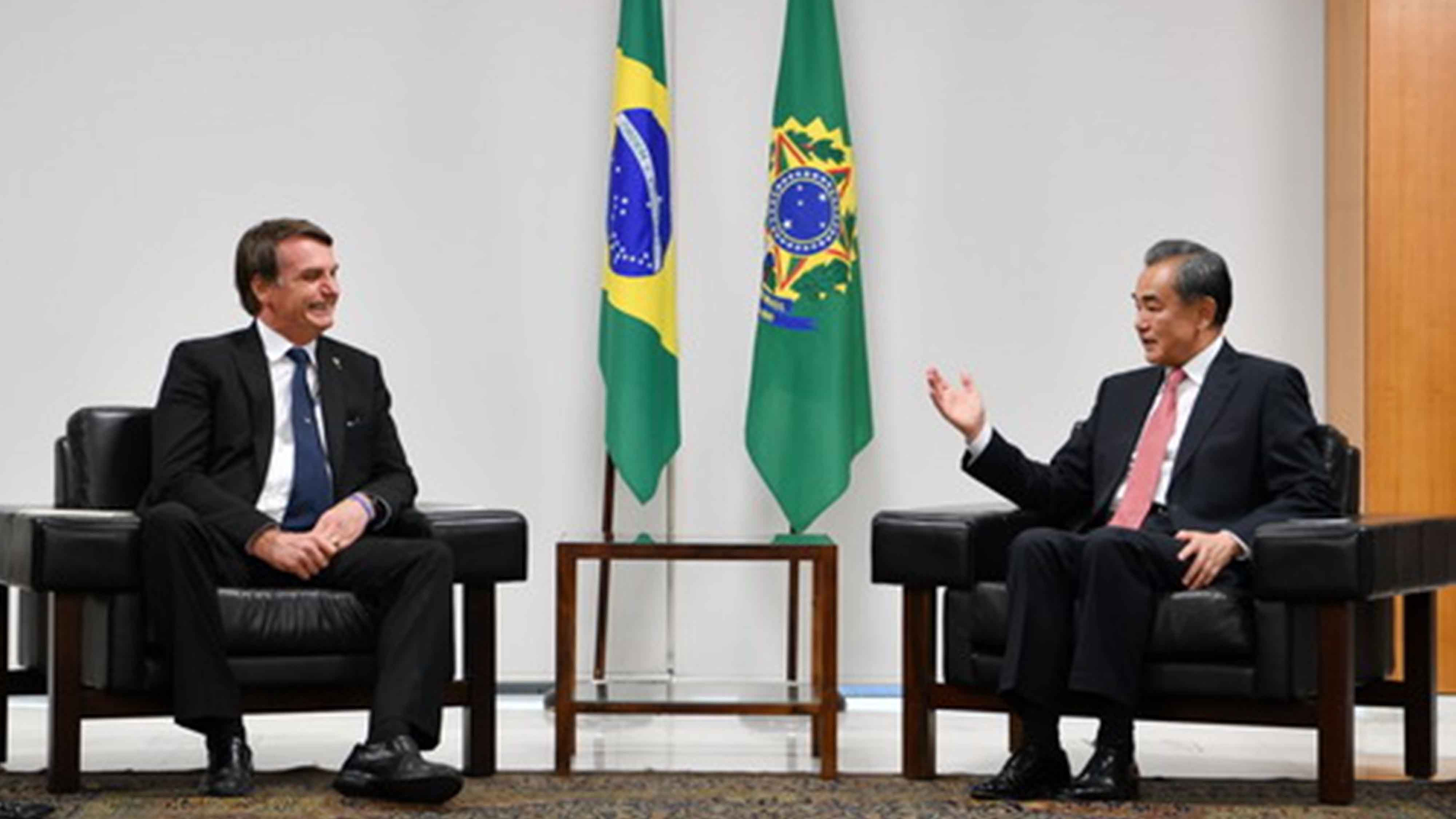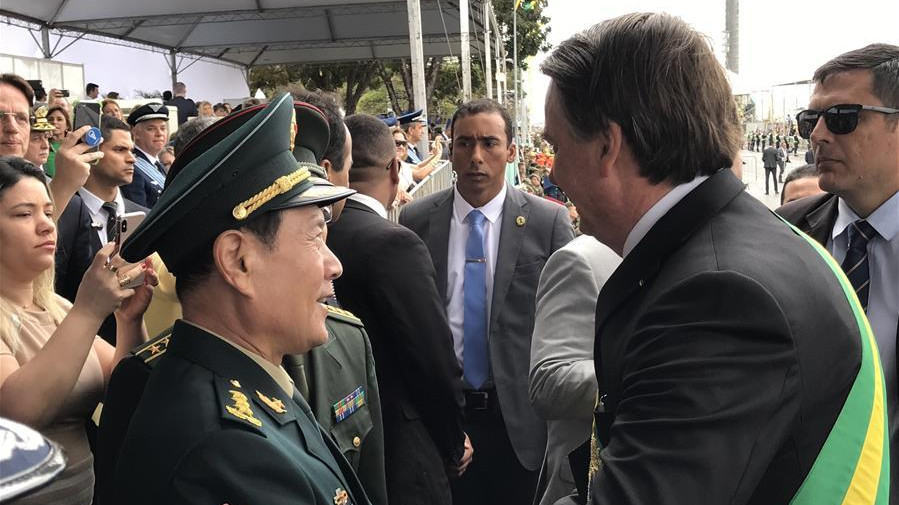Brazil's President Jair Bolsonaro will start his first state visit to China on Thursday, and Chinese President Xi Jinping will have an official meeting with him, during which the two leaders will exchange views on bilateral relations and matters of mutual interest.
Several bilateral economic and trade events are also listed on the visiting schedule, according to the Chinese foreign ministry.
How will the two leaders set the tone for the bilateral relations in the future, and how will the two countries realize the blueprint? Brazil's Vice President Hamilton Mourao said "the dynamism of our relationship shows no signs of slowing down or petering out; on the contrary, it points towards better and bigger ties" at the annual gathering of the Brazil-China Business Council in Sao Paulo in September.
Political trust solidified with frequent high-level exchanges
Bolsonaro took office on January 1 this year to serve as the 38th president of Brazil, and his term will run until the end of 2022, when he will be eligible for re-election for another four years.
During his inauguration ceremony, Bolsonaro said that the new government of Brazil attaches great importance to cooperation with China and that the prospect of cooperation between the two countries will surely become even better.

Chinese President Xi Jinping's special envoy Ji Bingxuan (front R), also vice chairman of the National People's Congress Standing Committee, delivers a signed letter from Xi Jinping to Brazilian President Jair Bolsonaro in Brasilia, Brazil, January 2, 2019. /Xinhua Photo
Chinese President Xi Jinping's special envoy Ji Bingxuan (front R), also vice chairman of the National People's Congress Standing Committee, delivers a signed letter from Xi Jinping to Brazilian President Jair Bolsonaro in Brasilia, Brazil, January 2, 2019. /Xinhua Photo

Chinese President Xi Jinping meets with Brazil's Vice President Hamilton Mourao at the Great Hall of the People in Beijing, May 24, 2019. /Xinhua Photo
Chinese President Xi Jinping meets with Brazil's Vice President Hamilton Mourao at the Great Hall of the People in Beijing, May 24, 2019. /Xinhua Photo

Chinese State Councilor and Foreign Minister Wang Yi (R) holds talks with Brazilian President Jair Bolsonaro in Brasilia, Brazil, July 25, 2019. / Photo via Chinese Foreign Ministry
Chinese State Councilor and Foreign Minister Wang Yi (R) holds talks with Brazilian President Jair Bolsonaro in Brasilia, Brazil, July 25, 2019. / Photo via Chinese Foreign Ministry

Brazilian President Jair Bolsonaro ( front R) meets with visiting Chinese State Councilor and Minister of National Defense Wei Fenghe during the 197th-anniversary celebration of Brazil's independence in Brasilia, capital of Brazil, September 7, 2019.
Brazilian President Jair Bolsonaro ( front R) meets with visiting Chinese State Councilor and Minister of National Defense Wei Fenghe during the 197th-anniversary celebration of Brazil's independence in Brasilia, capital of Brazil, September 7, 2019.
After that, the frequent high-level exchanges between the two sides continue.
While attending the third China-Brazil Foreign Ministers' Comprehensive Strategic Dialogue with his Brazilian counterpart Ernesto Araujo in Brasilia in July, Chinese State Councilor and Foreign Minister Wang Yi said he expects both sides to take this opportunity to upgrade relations to a new level, noting that this year marks the 45th anniversary of diplomatic relations between China and Brazil.
Xi and Bolsonaro are expected to meet again next month at the 11th BRICS summit.
Under the guidance of Xi and Bolsonaro, the comprehensive strategic partnership between China and Brazil has strengthened, and their practical cooperation has maintained a good momentum.
Huge potential in practical cooperation
Data suggests strong trade and economic ties between China and Brazil. Since 2003, China has invested over 71 billion U.S. dollars in Brazil. That exceeds the total amount Brazil received from Japan, France and Italy in the same period.
Meanwhile, being in line with the pro-market policies of Brazilian President Jair Bolsonaro, China-proposed Belt and Road Initiative (BRI) can also help to build a broader platform for further cooperation between the two sides.
Port of Paranagua in Brazil can be a good example to show the potential in BRI cooperation. China Merchants Port (CMP) acquired a 30-year concession for 90 percent of the Paranagua Container Terminal (TCP), the country's second largest, and launched operations there in February last year.
"We have everything to develop China-Brazil ties even more. We are expanding the terminal to raise the annual shipment of 1.5 million containers to 2.4 million," TCP's CEO Luiz Antonio Alves told Xinhua. "We are investing 165 million dollars to expand the port by 1,100 meters, and that will bring development to the whole region.
Mourao said in a recent interview that Brazil has expectations for the BRI and is willing to hear China's advice on cooperation, adding that he regarded his visit to China in May as a chance to send a political message on Brazil's position on the BRI.
Cooperation in technology areas such as satellites, artificial intelligence, the Internet of Things and 5G, and in the agriculture, tourism and sports sectors could also create more opportunities for the two sides, said Chinese Ambassador to Brazil Yang Wanming.